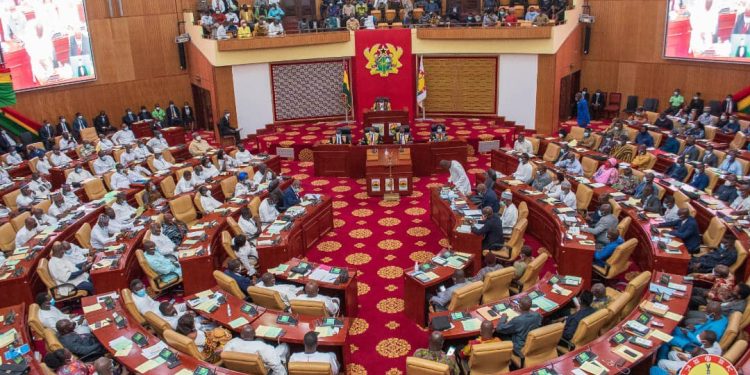Parliament has approved GH¢6.87 billion to empower the National Health Insurance Authority (NHIA) in executing health insurance claims and other outlined activities for the year. This approval, made during the 28th sitting of Parliament on Wednesday, March 20, 2024, also includes the endorsement of the 2024 distribution formula for allocating the funds, incorporating emergency assistance for dialysis patients for the first time.
The NHIA, responsible for facilitating access to healthcare services for NHIS members and administrative activities, will utilize the approved funds for various purposes, including the payment of claims, operational support, district office assistance, and healthcare-related projects. Notably, the allocation earmarks resources for supporting dialysis for needy patients, promoting regular health check-ups, facilitating health-related research, and enhancing public awareness and marketing efforts.
Section 40(2) of the National Health Insurance Scheme Act, 2012 (Act 852) specifies that money from the National Health Insurance Fund is to be used to pay for the healthcare costs of members of the NHIS, to pay for administrative expenses of the NHIS, and to facilitate the provision of access to healthcare services, among others.
The sources of proceeds into the fund include the National Health Insurance Levy (NHIL) of 2.5 percent of a person’s Social Security and National Insurance Trust (SSNIT) contribution, money approved for the fund by Parliament, money that accrues to the fund from investments made by the authority, grants, donations, gifts, and any other voluntary contributions made to the fund.
Funding for the NHIA is derived from multiple sources, including the National Health Insurance Levy (NHIL), parliamentary-approved funds, returns from investments, grants, donations, and voluntary contributions. However, the Earmarked Funds Capping and Realignment Act of 2017 limits NHIA’s share of proceeds to not more than 30%, necessitating periodic approval by Parliament for fresh funds.
During the parliamentary session, Joseph Osei-Owusu, the First Deputy Speaker and Chairman of the Committee of the Whole, proposed the adoption of a formula, which was seconded by Minority Leader Dr. Cassiel Ato Forson. The House unanimously agreed to this motion.
Members of the House positively received the introduction of promotive health checks, also referred to as a ‘wellness package,’ by the NHIA. This initiative aims to encourage Ghanaians to undergo regular health checks without direct payment. Approved by the Committee of the Whole of Parliament, this policy proposal allows NHIS subscribers to undergo basic vital checks on their birthdays.
Regarding dialysis allocation, Haruna Iddrisu, the National Democratic Congress MP for Tamale South, urged the NHIA to allocate GH¢10 million for dialysis support to needy patients in the country this year. He emphasized the national emergency caused by the lack of dialysis centers nationwide, suggesting that the initially proposed GH¢2 million for dialysis support was insufficient. Mr. Iddrisu advocated for an allocation of GH¢10 million, considering the NHIA’s corporate social responsibility allocation of GH¢30 million, as he believed this would adequately address the needs of patients requiring dialysis.
The NHIA CEO, Dr. Dacosta Aboagye, clarified that the allocated GH¢2 million for emergency dialysis support for needy patients was subject to ongoing actuarial modeling to ascertain the actual cost. Additionally, the NHIA introduced a new public policy initiative, the “wellness package,” enabling NHIS subscribers to undergo basic health assessments on their birthdays without direct payment.
“Mr. Speaker, page 24 of the expenditure explanation details that the formula has factored in expected medical inflation, a 30 percent increase in tariffs and expansion of the package to absorb mental health and dialysis after actuarial modelling,” Dr. Aboagye said.
Moreover, the NHIA plans to procure three million Ghana Cards for children aged six to 14 years, intending to enroll them in the Ghana Card system instead of issuing separate NHIS cards. Dr. Aboagye asserted that this initiative not only streamlines data integration with the National Identification Authority (NIA) but also extends the validity of NHIS cards from five to 10 years, ultimately resulting in cost savings.

































